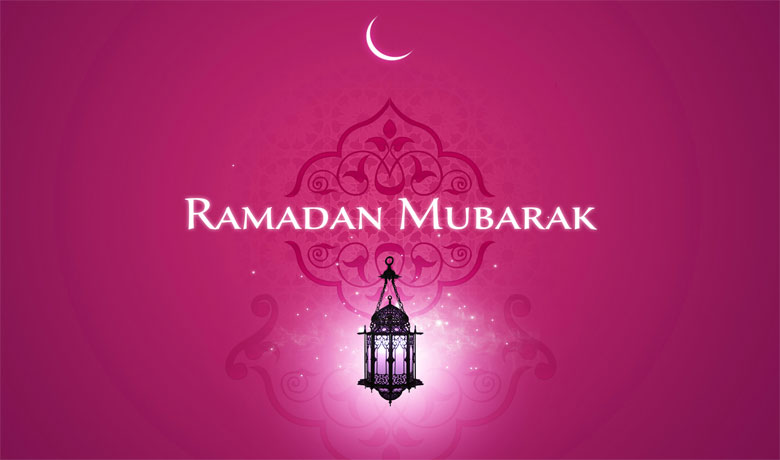News >> Religion
Everything you need to know about Ramadan
 18 Jun, 2015
18 Jun, 2015
Ramadan is the ninth month of the Hijri (Islamic) calendar. According to Islamic belief, it is observed by Muslims worldwide as a month of fasting to commemorate the first revelation of the Quran to the prophet Muhammad (peace be upon him). This annual observance is regarded as one of the Five Pillars of Islam.
Ramadan lasts for 29-30 days based on the visual sightings of the crescent moon. Muslims – there are 1.6 billion in the world – believe Ramadan is the holiest month in the year, when the Quran, the holy book of Islam, was revealed.
``The month of Ramadan (is that) in which was revealed the Quran, a guidance for the people and the clear proof for guidance and criterion. So whoever sights (the new moon of) the month, let him fast it; and whoever is ill or on a journey - then an equal number of other days. Allah intends for you ease and doesn`t intend for you hardship and wants for you to complete the period and to glorify Allah for that (to) which He has guided you: and perhaps you will be grateful.`` (Surah Al-Baqarah 2:185)
How do Muslims observe Ramadan?
Adult Muslims are required to fast from dawn until dusk every day throughout Ramadan. Those who are ill, elderly, diabetic, pregnant, menstruating, or breastfeeding are not required to fast. Those who were travelling or are unwell during the period of Ramadan may fast on different days at a later point. Children are not required to fast unless they have reached puberty, although many still do out of choice.
In addition to abstaining from eating, drinking, and smoking, Muslims also refrain from sexual relations as well as sinful speech and behaviour.
During Ramadan, Muslims pray every night for 30 days, reciting different chapters each day until the Quran is completed by Eid-ul-Fitr. This is called the Taraweeh prayer which is recited after Isha prayers in mid-evening.
Why fasting?
Fasting redirects the heart away from distractions, with its purpose being to cleanse the soul by freeing it from impurities. Ramadan is also a time for Muslims to practice self-discipline, sacrifice, and empathy for those less fortunate. It encourages generosity and charity.
When does fasting start?
Each morning before sunrise, Muslims engage in a pre-fast meal called Suhoor. Afterwards they begin the Fajr prayers.
When do Muslims break fasting?
Fast may be broken at sunset before Maghrib prayers after ‘Azaan’ (call for prayers). This occurs just after sunset. Dates are traditionally the first food to be eaten each evening. The fast-breaking meal is called Iftar.
When does Ramadan end?
Ramadan ends after 30 days. Eid-ul-Fitr is the top annual celebration of Muslims which is celebrated after the last day of Ramadan and it is considered a public holiday. The government will announce the exact holiday dates nearer the time.
Is it healthy?
Muslims do not fast continuously throughout the month: they eat before sunrise and break their fast at sunset each day.
Scientists have found that short periods of fasting – if properly controlled – can have a number of health benefits, as well as potentially helping overweight people.
Health advice from the NHS includes keeping hydrated and having the right proportion of carbohydrates, fat and protein in between fasts, and not bingeing on oily feasts – however tempting. This may, in fact, lead to gaining weight.
During fasting, the body uses up glucose and then starts to burn fat, which can lead to weight loss. So with prolonged fasting of many days or weeks, the body starts using protein for energy.
After a few days of the fast, higher levels of endorphins – hormones related to mood – appear in the blood and can make a person more alert and give an overall feeling of general mental wellbeing, according to the NHS website.
Dr Razeen Mahroof, an anaesthetist from Oxford, said, “A detoxification process also occurs, because any toxins stored in the body’s fat are dissolved and removed from the body.”
Ramadan for non-Muslims
Do non-Muslims have to fast? No. While Muslims don’t expect non-Muslims to fast as well, it remains important to show respect. As such there are certain things to know.
Most of the following points apply to the rest of the year too, but are even more important to adhere to during Ramadan.
1. Do not eat, drink, or smoke in public during the fasting hours. This includes chewing gum.
2. Do not engage in public displays of affection, like hugging.
3. Do not engage in any aggressive behaviour.
4. Do not dance or play music in public. You may listen to music quietly with headphones.
5. Do not wear inappropriate clothing in public. Dress respectfully. Men should avoid wearing sleeveless vests, while women should cover their shoulders and knees.
6. Do not swear. Blasphemy is considered extra offensive during Ramadan.
7. Do not refuse a gift, from a simple date to something more exotic, you should accept it. Further, you should not refuse an invitation to join someone at Iftar.
Where can you eat, drink, or smoke?
If you are not fasting, then you are free to eat and drink in the privacy of your own home, as well as in designated areas. Ask your employer where you can eat your lunch. The same goes with smoking.
Some restaurants and cafes will be open during the day. You are free to frequent these. Food can be taken away and consumed in private.
The National Moon Sighting Committee yesterday took the decision that the Ramadan will begin from tomorrow (Friday) as the new moon was not sighted anywhere in Bangladesh`s sky on Wednesday. So, ahead of this holy month we should take preparation to observe the fasting with religious sprit and manner and follow the teachings of Ramadan throughout the year.
Source: risingbd

